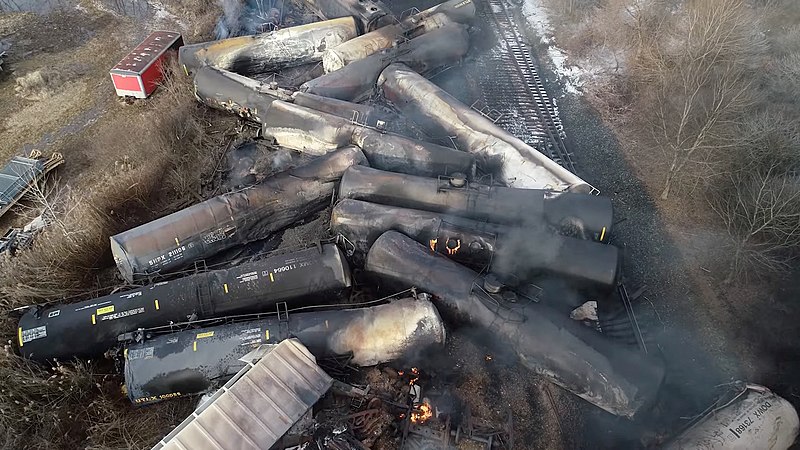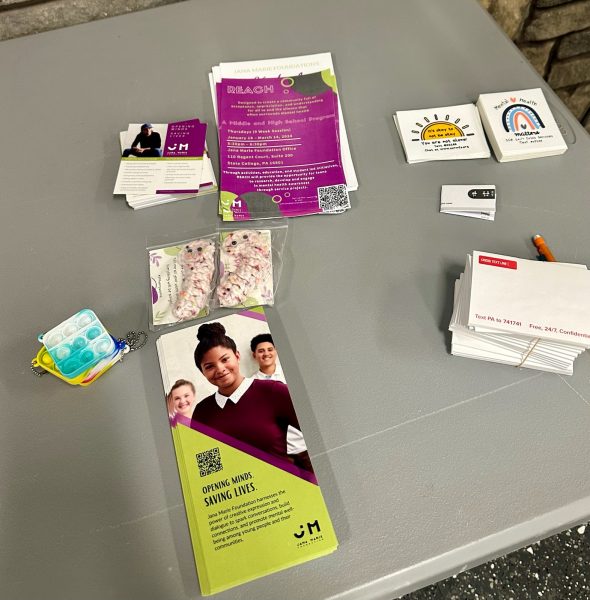Lasting Effects of the Ohio Train Disaster
The Ohio train derailment led to waterway pollution all around the area of the crash. Photo from the National Transportation Safety Board.
March 20, 2023
Vinyl chloride is a main component in PVC pipes and harmless on its own, but becomes dangerous when burnt or exposed to heat. Upon the burning of the chemical in Ohio, water around East Palestine was cited as unsafe for days, and community members reported headaches. Medical experts also cited the chemical leading to an increased risk of liver cancer.
The short and long term effects of the Ohio train derailing have been becoming increasingly more apparent.
Upon arrival at the scene, first responders found that a car was overheating and at risk to explode. They chose to release the chemical inside and burn it in a controlled environment, evacuating the area around it beforehand. On Feb. 3, this train – run by the company Norfolk Southern – went off its rails in the small town of East Palestine, derailing 11 of the 38 cars.
As the town is very close to Pennsylvania, Governor Shapiro claimed he will have the water contamination in the state tested for the next six months due to a waterline connection between the towns.
Despite the event having occurred a month ago, climate change activists and scientists are still greatly concerned with its long term effects socially, environmentally, economically, and politically.
One local climate activist, Sunny Flego, is incredibly angered with how the local government and company handled the crisis, both in the moment and afterwards.
“The government did not care about the welfare of any of the animals, and now it’s apparent that they don’t care about the welfare of any of the people,” she said, “since they’re money hungry.”
Others are not only concerned about its impact, but its lack of media coverage.
Tim Letwin, a freshman at Delta who is intensely passionate about climate advocacy said that “the worst part is that not enough people are talking about it. It’s one of the worst climate disasters ever, but I’ve been hearing more about the Grammys than this. […] we’re gonna feel the aftermath for a long time.”
Odessa Gregor, State High student and president of the Environmental Club, said that the issue is very concerning because of the greater conversations it brings into question.
“I think it kind of fits in with an overall issue with the environment where profit is prioritized to safety for both animals, plants, and humans,” she said.
Media has moved past the event as a whole, but the impact is felt far throughout the community and neighboring areas. As people move forward from the issue, the effects of it continue to develop.












